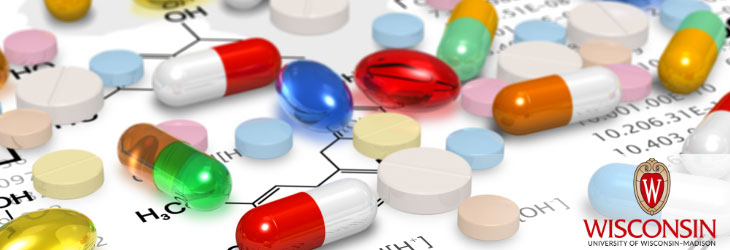Therapeutics & Vaccines

Antiviral Peptides and Methods for Inducing Cellular Resistance to Infection
WARF: P03289US
Inventors: Curtis Brandt, Hermann Bultmann
The Wisconsin Alumni Research Foundation is seeking commercial partners interested in developing peptides that are active against a broad spectrum of viruses.
Overview
Influenza virus causes millions of infections each year worldwide. Human parainfluenza virus (PIV) types 1,2,3 and respiratory syncytial virus (RSV) types A and B are the major viral pathogens responsible for causing severe respiratory tract infections in infants and young children. Approximately 4,000 children less than one year of age die each year in the United States from complications resulting from severe respiratory disease caused by infection with RSV and PIV-3.
No currently available product can effectively prevent infections from many respiratory viruses such as RSV or PIV. An antiviral peptide that can be easily and effectively administered to prevent infection from common respiratory viruses is needed.
No currently available product can effectively prevent infections from many respiratory viruses such as RSV or PIV. An antiviral peptide that can be easily and effectively administered to prevent infection from common respiratory viruses is needed.
The Invention
UW–Madison researchers have developed peptides that are active against a broad spectrum of viruses. These peptides may be useful as prophylactic or therapeutic agents to treat multiple viral respiratory tract infections, eliminating the need for specific vaccines.
The peptides do not need to enter cells to inhibit viral infection. Instead, the peptides permanently inactivate virions in solution and can block viral infection at post-attachment steps such as during cell entry. Additionally, when cells in culture are treated with the peptides, the cells become resistant to infection for up to several hours. The cellular resistance is reinducible, and the treated cells become resistant within five minutes of exposure to the peptides.
Animal studies have confirmed that the peptides are active against influenza virus and protect from death even when administered 24 hours post-infection. Preliminary toxicity data show the peptides are not toxic to cells in culture at concentrations up to 150-200 micromolar. They are also not toxic in vivo at doses one thousand times higher than the IC50 values.
The peptides do not need to enter cells to inhibit viral infection. Instead, the peptides permanently inactivate virions in solution and can block viral infection at post-attachment steps such as during cell entry. Additionally, when cells in culture are treated with the peptides, the cells become resistant to infection for up to several hours. The cellular resistance is reinducible, and the treated cells become resistant within five minutes of exposure to the peptides.
Animal studies have confirmed that the peptides are active against influenza virus and protect from death even when administered 24 hours post-infection. Preliminary toxicity data show the peptides are not toxic to cells in culture at concentrations up to 150-200 micromolar. They are also not toxic in vivo at doses one thousand times higher than the IC50 values.
Applications
- Prophylactic and therapeutic agents to treat respiratory tract infections caused by multiple viruses
Key Benefits
- Effective against all enveloped viruses tested thus far, including HIV, HSV and several strains of influenza, including H1 and H5
- Active at low micromolar concentrations
- Inhibit viral infection through three mechanisms of action, including a novel mechanism involving the viral envelope
- Easily administered – can be given via a nasal spray or as an inhaled powder
- Show low toxicity both in vitro and in vivo
Additional Information
For More Information About the Inventors
For current licensing status, please contact Rafael Diaz at [javascript protected email address] or 608-960-9847